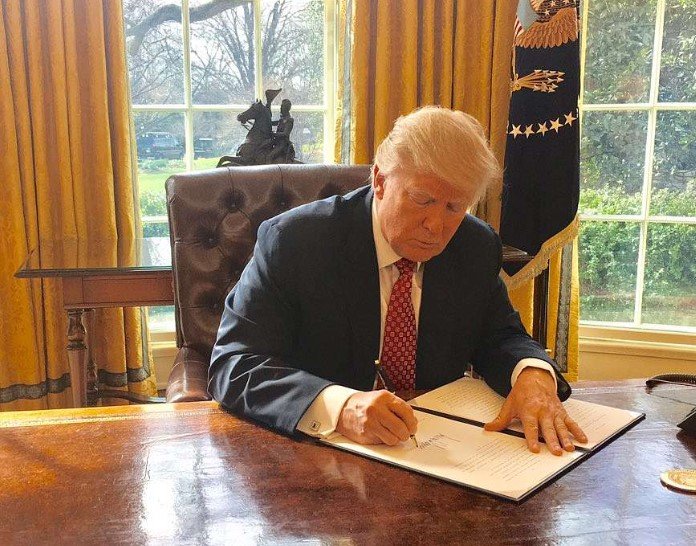White House Prepares for Executive Action on Trade as Trump Sticks to Campaign Promise
U.S. President Donald Trump is expected to sign an executive order imposing “reciprocal tariffs” before his scheduled meeting with Indian Prime Minister Narendra Modi on Thursday, February 13, 2025. The move underscores his administration’s aggressive stance on trade and could trigger new tensions with key U.S. partners.
Trump Signals Swift Action on Tariffs
Speaking from the Oval Office on Wednesday, Trump made it clear that he could authorize the tariff measures by the end of the day or early Thursday. White House Press Secretary Karoline Leavitt echoed the sentiment, confirming that an announcement was likely before his talks with Modi.
During his re-election campaign, Trump repeatedly pledged to implement a policy of “an eye for an eye, a tariff for a tariff,” arguing that U.S. exporters face unfair levies abroad. The anticipated executive order aims to ensure that foreign nations imposing tariffs on American goods will face equivalent duties on their exports to the U.S.

Steel and Aluminum Tariffs in Focus
A White House official told AFP that Trump’s administration is preparing to levy a 25% tariff on all steel and aluminum imports. This would be in addition to existing duties imposed on Canadian and Mexican exports. The official emphasized that the administration sees this as a necessary step to protect American manufacturers and jobs.
The potential impact of these tariffs is already sparking reactions across industries:
- Domestic manufacturers have largely welcomed the move, arguing that it will level the playing field.
- U.S. importers warn that higher costs could be passed down to consumers.
- Foreign trade partners are expected to retaliate, further straining global trade relations.
Trade Tensions Could Complicate U.S.-India Talks
Trump’s scheduled meeting with Modi adds another layer of complexity to the situation. India has previously been targeted by U.S. tariffs, and the two nations have had a history of trade disputes. If the executive order is signed before the meeting, Modi may push for exemptions or negotiations on specific goods.
The timing is crucial. India, a key player in global supply chains, could respond with countermeasures that affect American businesses relying on Indian imports. The Indian government has yet to issue an official statement, but trade analysts predict a cautious approach.
Broader Economic Implications
Economists are divided on the long-term effects of reciprocal tariffs. Some argue that they could strengthen domestic industries, while others warn of a potential slowdown in trade and investment. Historically, tariff escalations have led to trade wars, with the 2018-2019 U.S.-China tariff battle serving as a stark reminder of the risks involved.
With Trump pressing ahead with his protectionist trade policies, businesses and investors will be watching closely. Whether this move strengthens the U.S. economy or triggers another cycle of retaliatory tariffs remains to be seen.
